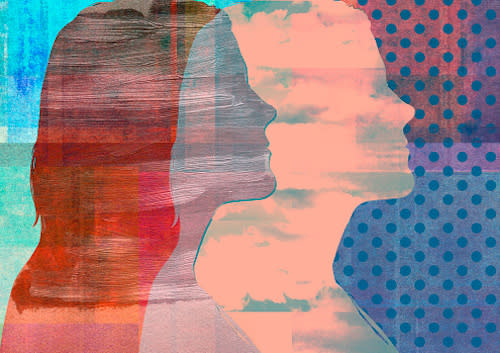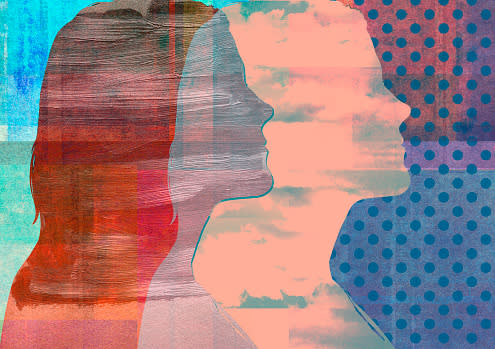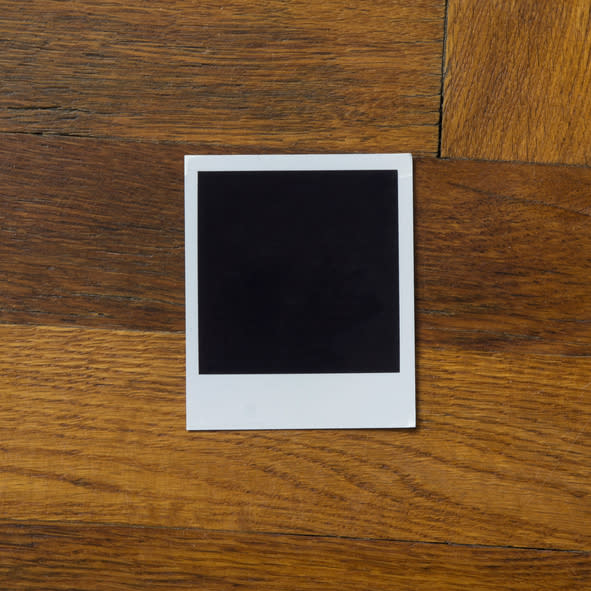I finally got to know my mother after her mental illness diagnosis

The first week of October is Mental Illness Awareness Week.
My mom has always been a bit of a mystery to me.
Throughout my childhood, she appeared to be the quintessential middle-class suburban mom with two kids in tow.
Soccer practices, choir rehearsals, dance recitals, orchestra competitions — my mom was front row and center for all of it. I interacted with many facets of my mother’s identity — the cheerleader, the biggest fan, the multitasker, the secretary for her children’s calendars, the nurse — but I never truly knew her.
Behind the “Best Mom” badges, school field trip permission slips, and to-do lists, there was a woman I didn’t really know.
I am told that, as a small child, I was a mama’s girl.
But once my tumultuous teenage years took their toll, my relationship with my mom became strained.
The older I got, the closer I became to my dad. A love of sports, books, and music connected us. My teenage years warred on, and fights with my mom grew more common.
I was a rambunctious teenager, always wanting to get out, explore, and press the limits. I colored outside the lines. I spoke my mind. I didn’t have a problem sharing my opinion. I questioned why I always had to do “girl chores,” like setting the table, doing laundry, or vacuuming, while my brother got to sit and watch TV. I questioned why it was “wrong” to wear my hair natural. I questioned my parents’ views on drinking and tattoos.
My mom was followed the rules. She tried to keep everything perfect, to keep everyone within her control. If anyone came by our house to visit, even if it was just a quick hello, then the house had to be clean from floor to ceiling. Sometimes, during rides to church on Sunday mornings, we’d argue — but in 10 minutes or less, my mom’s face would be powdered and made up to perfection, ready for her Sunday morning hellos. I would sulk and reluctantly enter church, unwilling to pretend I was okay.
I couldn’t wear my mom’s mask.
My mom wanted pristine perfection, or as close to that as she could get. She wanted a good Christian home, a loving, picturesque marriage, and two outstanding kids — or at least the appearance of those things. I never understood my mom’s obsession with seeming like she had it all together, all the time.
***
But when I was an 18-year-old college freshman, my mom started exhibiting her first signs of mental illness.
My dad, my brother, and I would later learn that her high highs and low lows were symptoms of bipolar disorder. My mom’s episodes were sporadic, confusing, and scary for my entire family.
The stable, corny, cookie-cutter mom I’d known for my entire life was gone. To this very day, I miss her so much.
Mental illness is not a linear journey, neither for the person living with it nor their loved ones. My family and I have seen the insides of too many ER rooms, in-patient clinics, courtrooms, and psychiatrists’ offices. I have watched the bright colors of police lights fill my front yard. I have sat in my parent’s garage cleaning up shards of glass after one of my mom’s episodes.
***
In the years since my mom’s diagnosis, I’ve felt everything from grief, to anger, to guilt, to embarrassment, to shame, to sadness, to loneliness. I stepped up and helped my dad care for her as best I could.
Throughout my college years, I came home on weekends to clean, cook, and make sure my mom was taking her medication. I tried my best to encourage my dad, to be a daughter, a friend, and a support system.
But after graduating from college, I had to take steps back from caring for my parents in order to take care of myself. This was the first time I looked back on the fragmented pieces of my family’s story with both pain and gratitude. Pain for what was lost, and gratitude for what the pain gave me: perspective, growth, humility, and compassion.
Suddenly, I could see my mom more clearly, only to find that we have more similarities than differences. Phone calls with my aunts to update them about my mom’s condition became conversations in which they’d reminisce about their little sister. Car rides with my dad became talks about the woman he fell in love with. Visits with her childhood best friends became stories about the young woman my mom was before she was my mother.
I learned about my mom’s quirky, silly personality, about her opinionated debates on practically any topic.
I learned she even failed a class in college once. I learned she got her heart broken by a guy who she thought was The One (before she met my dad).
I learned that her father committed suicide. I learned about the history of mental illness in our family. I learned about her insecurities, and some of the painful experiences she endured.
I got to see my mom more clearly through the stories other people painted. It was the closest I’d ever felt to her in my entire life.
Instead of the perfect, polished picture of a person that my mom had always shown me, I saw an imperfect woman with scars, lessons learned, heartaches, and a less than perfect past.
Now, I look back on my childhood knowing that my mom did her best. Perhaps she wanted to create a seemingly perfect and safe home for her kids because she didn’t grow up in one. Perhaps she felt the need have it all together to make up for not having it all together in years past.
If I could tell my mom anything now, it would simply be this:
You don’t have to be perfect. If you only let me see the authentic you, the imperfect you, it’d only make me love you more.
P.S. It looks like my feisty, rambunctious spirit comes from her after all.


